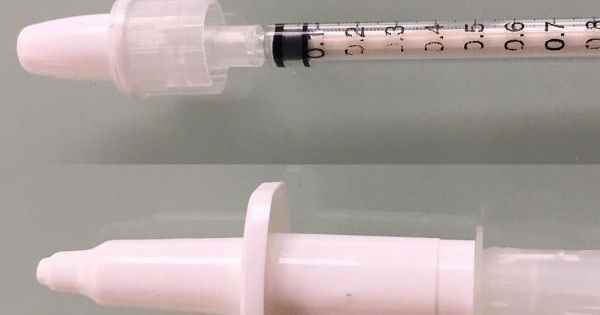Posted ,
Reading 2 mins.
It has been almost two years since a research team from the University of Tours, supported by several other university teams as well as by INRAE, has been working on the development of a nasal vaccine against Covid-19. After validating several stages, they are now preparing trials in humans.
This candidate vaccine has been subjected to pre-clinical tests conducted in the laboratory. The latter had demonstrated its effectiveness after two nasal immunizations spaced three weeks apart, both in terms of immune response and early neutralization of the original virus. This therefore considerably reduced the risk of contamination by a vaccinated individual. Then, at the end of 2021, these results were confirmed by new pre-clinical trials on rodents validating its effectiveness against the Delta variant. The vaccine, consisting of the Spike protein and non-mutated viral proteins, would therefore protect against the strain of SARS-CoV2 currently circulating despite multiple mutations.
First human trials
After working on fundraising, the challenge now for scientists is to produce this biomedicine from the 1st quarter of 2022. This will be done by the Toulouse company GTP Bioways. In Q2 2022, production of clinical batches will be launched for human trials.
At the same time, the specific instillation systems – of novel design – of this vaccine in the nose, are the subject of collaborative exchanges with two specialized companies.
Expand immunization coverage
This nasal vaccine will be non-invasive and will require simplified logistics, which is why this vaccination system will make it possible to extend the vaccine system more widely than it is at present. Once it is marketed, it could therefore be intended for countries for which the vaccination coverage rate is satisfactory as a booster vaccination. And this in order to strengthen the immune response to protect the vaccinated population from symptomatic forms of the disease and prevent the transmission of the virus. But also to countries whose populations are not yet vaccinated.
Consult a GP online
Towards the end of the pandemic?
According to Isabelle Dimier-Poisson, research director, head of the BioMAP INRAE - University of Tours team, and co-founder of the start-up LoValTech, “this vaccine can lead to vaccine protection by acting from the entry point of the virus, which are the respiratory tract, to make it possible to stop the multiplication of the virus very early, to avoid propagation, infection and contagiousness and therefore to stop the pandemic”. She even believes that this type of vaccine could thus “constitute a path capable of returning to a pre-pandemic life”.
